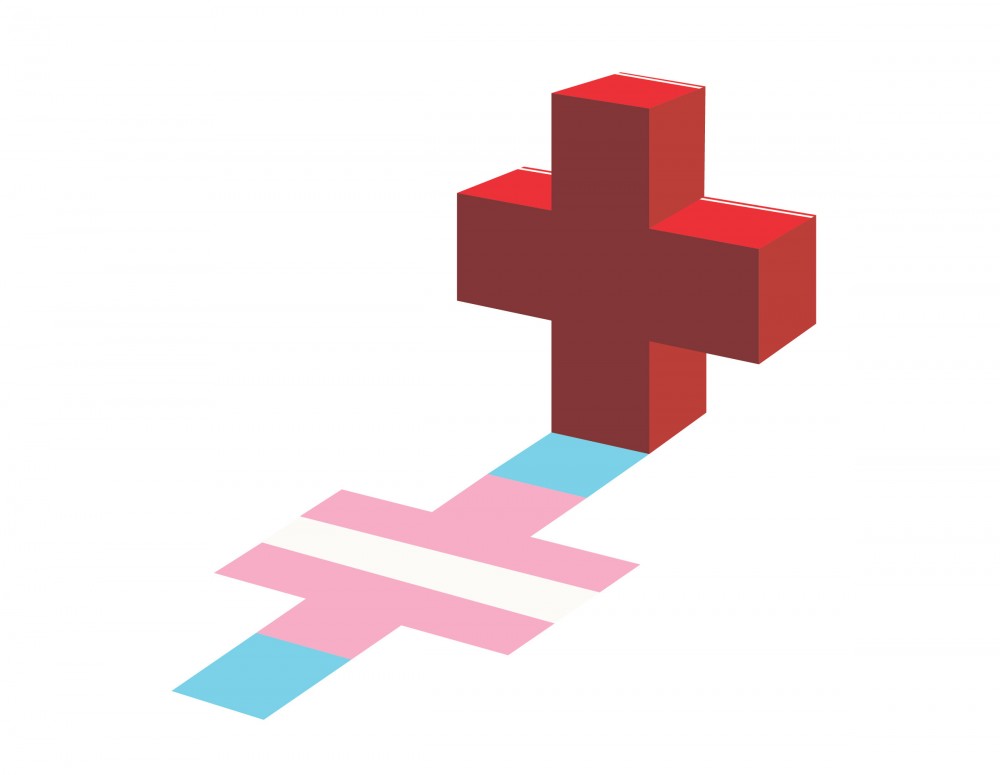A University of Minnesota researcher published an article late last month that outlined health discrepancies among gender minority individuals — finding they are not treated as effectively as people who identify with the sex that was given to them at birth.
Gender minorities include individuals whose gender identity differs from that which was assigned at birth. The article, written by University researcher Walter Liszewski and published in the New England Journal of Medicine, found gender minority individuals are more likely to be refused treatment or discriminated against in health care.
“The health care infrastructure is just not keeping pace with society. You cannot assume the anatomy of an individual based off of their outward appearance or their name,” Liszewski said.
Nineteen percent of gender minority individuals have been refused treatment by clinics because of their gender identity, according to the article. More than 20 percent have avoided treatment in the past year due to a fear of discrimination.
This did not surprise Jimmy Cooper, a nonbinary University first-year student who uses he/him and they/them pronouns. It took nearly two weeks for Cooper to be diagnosed with a urinary tract infection because he did not want to have to explain his gender identity to a health care provider.
Tanith Broom was also not surprised. For Broom, a nonbinary trans health advocate who uses they/them pronouns, it took 19 doctors to be diagnosed with a chronic illness — a process they think would have been expedited had they been cisgender.
“If you identify on the nonbinary scale, the push-back you get from supposedly educated and competent doctors and surgeons is kind of insane. It creates this environment that’s just so much more hostile,” Broom said.
Personal encounters with health care inadequacies, both on the patient and provider side, are part of the reason why Broom co-founded TransChance Health — an organization that aims to educate and empower the trans community in health care.
“With trans medicine, just basic population study and research is so far behind and that almost goes double-so for the non-binary community. It’s another level of discrimination that trans and non-binary individuals face because there’s so little research out there,” Broom said.
James Pathoulas, a co-chair of Promoting Recognition of Identity, Dignity and Equality in Healthcare, a student organization on campus that aims to promote LGBTQ inclusivity in health care, also said research is lacking.
“If we’re not collecting the data, we’ll never know that there’s a problem, and we’ll never be able to intervene to create a positive outcome,” Pathoulas said. “Whatever you are, whoever you are, if you care about patients – which is everyone in health care – to really give quality care, you need to have quality data.”
Erica Anderson, a University alumna and San Francisco-based psychologist who specializes in gender-identity, said while she was an undergraduate and graduate student, most people still believed that gender was a binary: a person was either male or female. Anderson, who identifies as a trans woman, said there has since been progress in understanding gender identity.
“Many things have happened in both science and culture, and we now are beginning to recognize that there are differences, a continuum in sexuality and gender,” Anderson said. “I think that people are coming to realize that there really is nothing about being human that is binary. There’s no single narrative to explain any group of people. You have to understand an individual’s developmental journey.”
The University has shown this progress as well, like the proposed pronoun policy and a more inclusive approach to health care at Boynton Health.
“We’ve been able to carve out a space in our current electronic health records so that we can use preferred pronouns and preferred names,” said Dave Golden, director of public health and communications for Boynton. “We should just work on not constantly defaulting to the binary.”
Though other gender identifications for male and female are a good start, there is still room for improvement, Broom said. Both Cooper and Broom said that multiple health care providers have told them that the real conditions they have could be because of their gender identities.
“I put off seeing a gynecologist for years because I don’t want to sit there and be stigmatized and dehumanized for an hour or however long,” Cooper said, commenting on how hurtful it can be to be misgendered. “I’d like to believe that it’s not malicious. … It’s just really a level of incompetence surrounding trans people.”
Trans rights and gender identity have become politicized and polarized issues, and Liszewski said that’s why more physicians should educate themselves on gender identity.
“One of the wonderful things about medicine is that it is political,” Liszewski said. “The needs of our patients can be controversial, and I think [that] as health care providers, we have an obligation to advocate for all of our patients but particularly advocate for the most vulnerable or for those who society sort of neglects.”

















